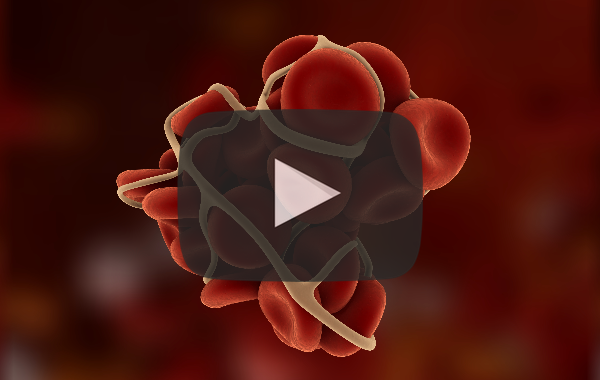Clinical cases of cancer-associated thrombosis (CAT) in patients with renal dysfunction
Program
 Cancer and renal dysfunction both increase the risk of venous thromboembolism (VTE). Anticoagulants are not all the same, and extra consideration is needed in patients with renal dysfunction. Low molecular weight heparin (LMWH) is named as the treatment of choice for cancer-associated thrombosis (CAT) in both Canadian and international guidelines, with a treatment duration of 6 months recommended. Even among the LMWH, there are differences that must be considered for the patient with renal dysfunction.
Cancer and renal dysfunction both increase the risk of venous thromboembolism (VTE). Anticoagulants are not all the same, and extra consideration is needed in patients with renal dysfunction. Low molecular weight heparin (LMWH) is named as the treatment of choice for cancer-associated thrombosis (CAT) in both Canadian and international guidelines, with a treatment duration of 6 months recommended. Even among the LMWH, there are differences that must be considered for the patient with renal dysfunction.
The speakers will present a case of CAT in a patient with moderate-severe renal dysfunction, as well as information about the differences among anticoagulants and within the LMWH class, use of anticoagulants in patients with renal dysfunction, and the Canadian consensus recommendations on the management of venous thromboembolism in patients with cancer.
Dr. Louise Moist
Dr Louise Moist (Nephrologist, Professor of Medicine and Epidemiology, University of Western Ontario)
Dr. Moist is currently Professor of Medicine and Epidemiology and Biostatistics at the University of Western Ontario and Director of the Regional Hemodialysis Program at the London Health Sciences Centre. Dr. Moist is clinically active in both inpatient and outpatient settings and teaches medical students and residents at all levels of training including supervision of students completing a Masters in Epidemiology and Biostatistics. Dr. Moist is the Clerkship Director for the Internal Medicine program at the University of Western Ontario.
Dr. Marc Carrier
Dr Marc Carrier (Associate Professor, Faculty of Medicine, University of Ottawa)
Dr. Marc Carrier is an Associate Professor in the Faculty of Medicine, Department of Medicine and Scientist in the Clinical Epidemiology Program of The Ottawa Hospital Research Institute. Holds a Tier 2 Research Chair in Venous Thromboembolism and Cancer from the University of Ottawa and New Investigator Award from the Heart and Stroke Foundation of Canada.
